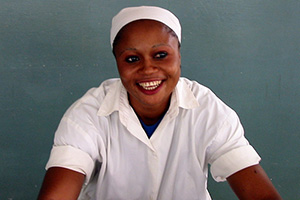Conclusions
 With nearly ten years of relatively modest support for the FBO sector, significant interventions have produced positive results. This is critically important in a number of countries where FBOs provide more than 30% of health care. FBOs now recognize that in order to continue providing quality care, they need to improve their HRH. Through the somewhat limited technical assistance provided by CapacityPlus in response to requests from ACHAP members, a number of important lessons have been learned.
With nearly ten years of relatively modest support for the FBO sector, significant interventions have produced positive results. This is critically important in a number of countries where FBOs provide more than 30% of health care. FBOs now recognize that in order to continue providing quality care, they need to improve their HRH. Through the somewhat limited technical assistance provided by CapacityPlus in response to requests from ACHAP members, a number of important lessons have been learned.
Government and faith-based organization partnerships
Integrating FBOs into government HRH initiatives can work well when FBOs have established a memorandum of understanding with the public sector, or where the FBOs are included in Ministry of Health HRH technical working groups or initiatives. ACHAP member experiences indicate that FBO-government partnerships on HRH issues are stronger where there is government support for FBO health worker salaries (such as in Ghana, Malawi, and Zambia). This is because both parties are involved in the planning and management of the health workers assigned to FBO facilities. On the other hand, where such arrangements do not exist, FBOs have sometimes experienced significant migrations of their workers to the public sector due to more attractive terms and conditions for service (GTZ/GIZ 2007). More research can confirm the effectiveness of memoranda of understanding, service-level agreements, and other types of FBO-Ministry of Health arrangements.
Inclusion of health as a priority for faith-based organization leadership
Involvement and advocacy with church leadership and structures can be challenging due to the fact that FBOs also manage non-health-related initiatives and do not always consider health a priority. For example, with the study on HR management policy implementation conducted in Kenya in 2013–2014, competing priorities made it difficult to obtain the participation of the Kenya Conference of Catholic Bishops, even though over 400 Catholic health facilities benefited from the HR management intervention.
Integration of faith-based organization health workers into national databases
It is critical to integrate FBO health worker statistics into national databases. Integration will make it possible to obtain a true picture of health workers in a given country. More resources are required to fully support efforts to ensure participation and inclusion of FBOs in national HR information systems.
Documentation of successes
Health workers at faith-based facilities deal with many of the same HRH challenges faced by government health workers, and FBOs generate solutions to many of these challenges that could benefit the public sector. However, many FBOs do not sufficiently document their accomplishments.
Retention of health workers
FBO institutions experience high turnover and retention challenges due to salary issues and lack of training and career development opportunities, among other problems. In many cases, FBOs lack the resources to implement promising retention strategies. On the other hand, FBO health workers are often more willing to work in remote rural settings than public sector health workers, especially if they are posted to the same rural health training institutions in which they are trained.
Intercountry exchanges
Working through ACHAP—an organized regional FBO network—made it easy to foster shared learning and exchange, support scale-up of interventions, and carry out joint advocacy efforts. The HRH technical working group offered a particularly effective forum for intercountry exchanges and learning. CapacityPlus was able to tailor and pilot a variety of studies and products, including a wage study, the HR management assessment approach, application of Global Health Workforce Alliance recommendations, and testing of eLearning courses. This proved mutually beneficial for ACHAP members and CapacityPlus. Working through a field-based staff member seconded to ACHAP also helped establish and sustain relationships between the various CHAs and the ACHAP leadership.

